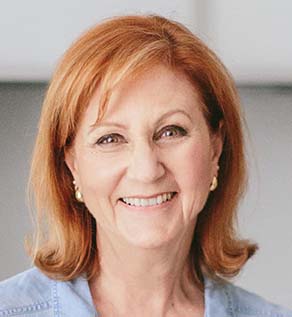Many people I speak to are not completely sure if they have irritable bowel syndrome, even if they have been given the diagnosis. My video will help you through a series of questions to decide if you really have IBS or not.
The Transcript
Today I would like to help you clarify whether you actually have IBS or not.
On many of the application forms that are filled out for my coaching program, is the comment. “I am not sure if I have IBS” or “I have been diagnosed with IBS but I don’t believe it” or “I haven’t been diagnosed with IBS but I think I might have it.”
So, I thought I would try to help you make that decision about whether you do or don’t have IBS.
I will ask a question and then I will give you an explanation. If you answer yes to some or even all of these, then you have IBS. But you don’t need to experience them all to have IBS.
1. Do you usually feel bloated after eating?
This happens when the carbohydrates you eat in fruit, vegetables, grains, lactose-containing foods and legumes are not completely absorbed in the small intestine but move undigested down into the large bowel where the bacteria present there get all excited at this unexpected feast and feed on it, fermenting the food and causing the bloating. In people without IBS, this absorption largely happens in the small intestine and so there is little to no bloating, but this is not the case in those of you with IBS – you absorb some but not enough and so, with the wrong diet, large amounts continue on into the bowel. How do you stop this happening? That’s simple – you stop eating the foods that are high in these carbohydrates.
2. Do you have erratic bowel movements, which could include diarrhoea, constipation or both?
People without IBS usually have one bowel movement a day (this is the average), stay on the toilet for a couple of minutes and it is all over. That’s normal. For those of us with IBS, that is a distant and unattainable dream. If we do have any sort of routine, it is an unpleasant one. Those with constipation have to sit for quite a while to get anything to happen and it could include a degree of straining that can cause haemorrhoids and fissures. Those with diarrhoea need to visit the toilet often and with little warning, which means a life that is limited, humiliating and miserable. A third group have a surprise every time they visit the toilet – it could be constipation or diarrhoea – not a pleasant surprise by any stretch of the imagination.
3. Do you get abdominal pain but not always in the same place?
This pain is from trapped wind, which could be anywhere in the bowel, or from cramping of the muscles in the gut.
4. Do you have incomplete evacuation? That feeling that there is something left.
This is part and parcel of IBS and one of the unpleasant symptoms, which means that you seldom getting any satisfaction from a bowel movement. This does not necessarily mean that there is anything of significance left – it one of those false sensations that you feel because of faulty signals being sent between the brain and the gut and because of your oversensitivity to normal sensations. In other words, your body misinterprets signals.
5. Do you have an urge to go to the toilet but little comes out?
This is because of the above – misinterpreted signals. It is very hard to resist these urges which result in very little action but it can be done over time. You can teach your body a new way to respond by not running to the toilet every time you feel a little cramping. You do have to be careful though – because you don’t want an accident.
6. Do you feel your digestive system rules your life?
Most people seldom think about what is happening inside their guts – they take it for granted. But for you, until you get your symptoms under control, it dominates your every waking thought. The proximity of the nearest toilet is always uppermost in your mind. The decisions you make in life are dictated by your digestive system.
7. Have you been from health practitioner to health practitioner without getting a definitive, satisfactory answer?
This situation is getting better but still too many health practitioners give advice that doesn’t help and sometimes actively increases symptoms like the advice to take fibre supplements and the advice to eat more fruit and vegetables. I am sure you have been to many, many different health practitioners from medical specialists to naturopaths but none have actually helped unless they mention the low Fodmap diet that is. And that is happening more and more often, thank goodness.
8. Do you eat as healthily as possible but nothing helps?
I always say that people with IBS are the healthiest eaters on earth. You have often chased the elusive perfect diet for years, even decades and have acquired a lot of information over the years. Unfortunately, all this knowledge of conventional healthy eating is of little use to you. You turn what is considered healthy on its head. It is the fruit and vegetables that you have to be careful of – the very thing that doctors have told you to increase. Some even follow a vegetarian or vegan regime in their attempt to find the answer. It would not be possible to go further off track, if you tried. Protein meats are one of the food groups that don’t hurt our IBS at all.
9. Have you cut out dairy and/or gluten but, though it has helped a little, it still hasn’t completely answered the problem?
Cutting out lactose and gluten does go some way towards the answer but it is not the complete solution. And the low Fodmap diet is an all-or-nothing diet. Even one high Fodmap food will cause symptoms. I do want to clarify – the gluten or protein in wheat, barley and rye – is not our problem. It is the fructans or carbohydrate part that hurts us. But the public understands gluten-free while they would look at you sideways if you asked for fructan-free bread.
10. Do you wonder if you have something serious going on?
This has to be the most common thing I hear on phone calls – that you are not too sure whether it is just IBS or whether something else terrible is going on. If you have actually been given the diagnosis of IBS, then it is highly likely your doctor has already excluded other possibilities. At a certain point you will have to stop fighting the obvious answer – that you have IBS. But do get the necessary tests done.
I hope that has helped to clarify if you have IBS or not.




Do they know what causes IBS? I don’t have it but it seems to be becoming increasingly common. So many people have stomach/bowel issues xx
Unfortunately, they don’t know what causes it yet. Once they do, we may be on the way to a cure or prevention. There are definitely certain factors that seem to trigger it though, like prolonged or deep stress, an operation (particularly those which involve the bowel area), an infection in the gut, heavy use of antibiotics and it could even be genetic. Some people have it all their lives while others get it suddenly at any stage of their lives. More woman than men have IBS and it knows no cultural boundaries, but it is thought that more people in the western world have it.
i need to know what to eat and buy when I go food shopping I need help .
Am in so much pain all the time what can I do plz help
Yolanda, if you need a list of foods, go here: https://www.strandsofmylife.com/foods-can-eat-low-fodmap-diet/
I also have many videos on the diet here: https://www.strandsofmylife.com/low-fodmap-videos/
If you feel you need more help than that, please have a look at my coaching options here: https://www.strandsofmylife.com/coachingprograms/